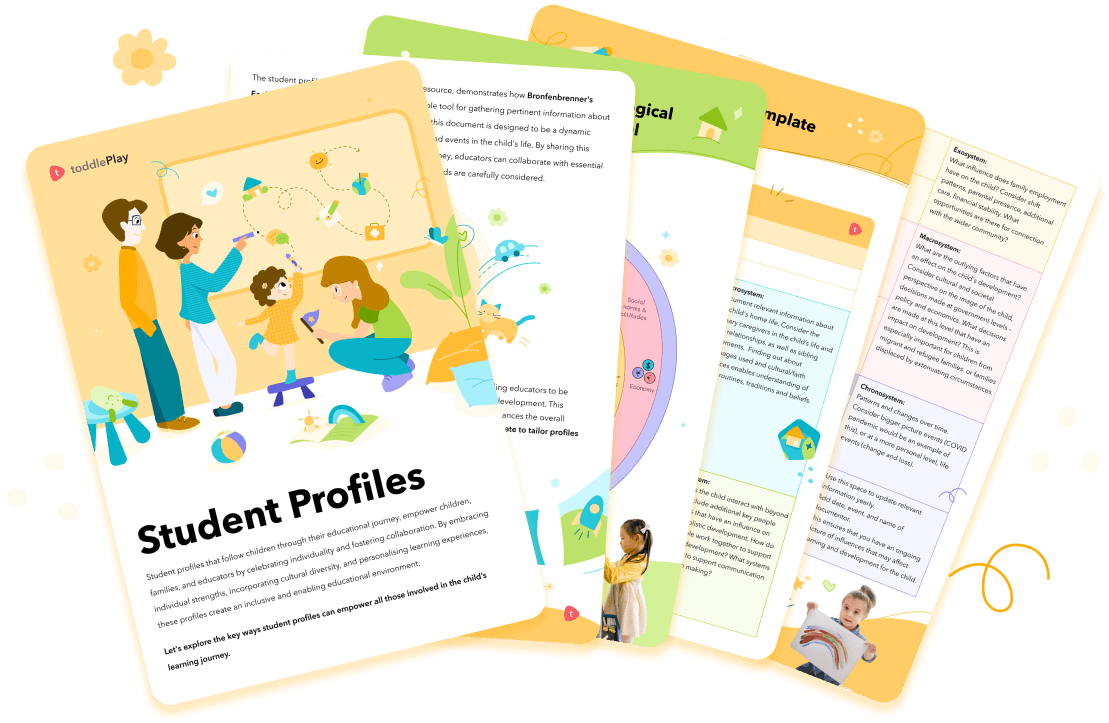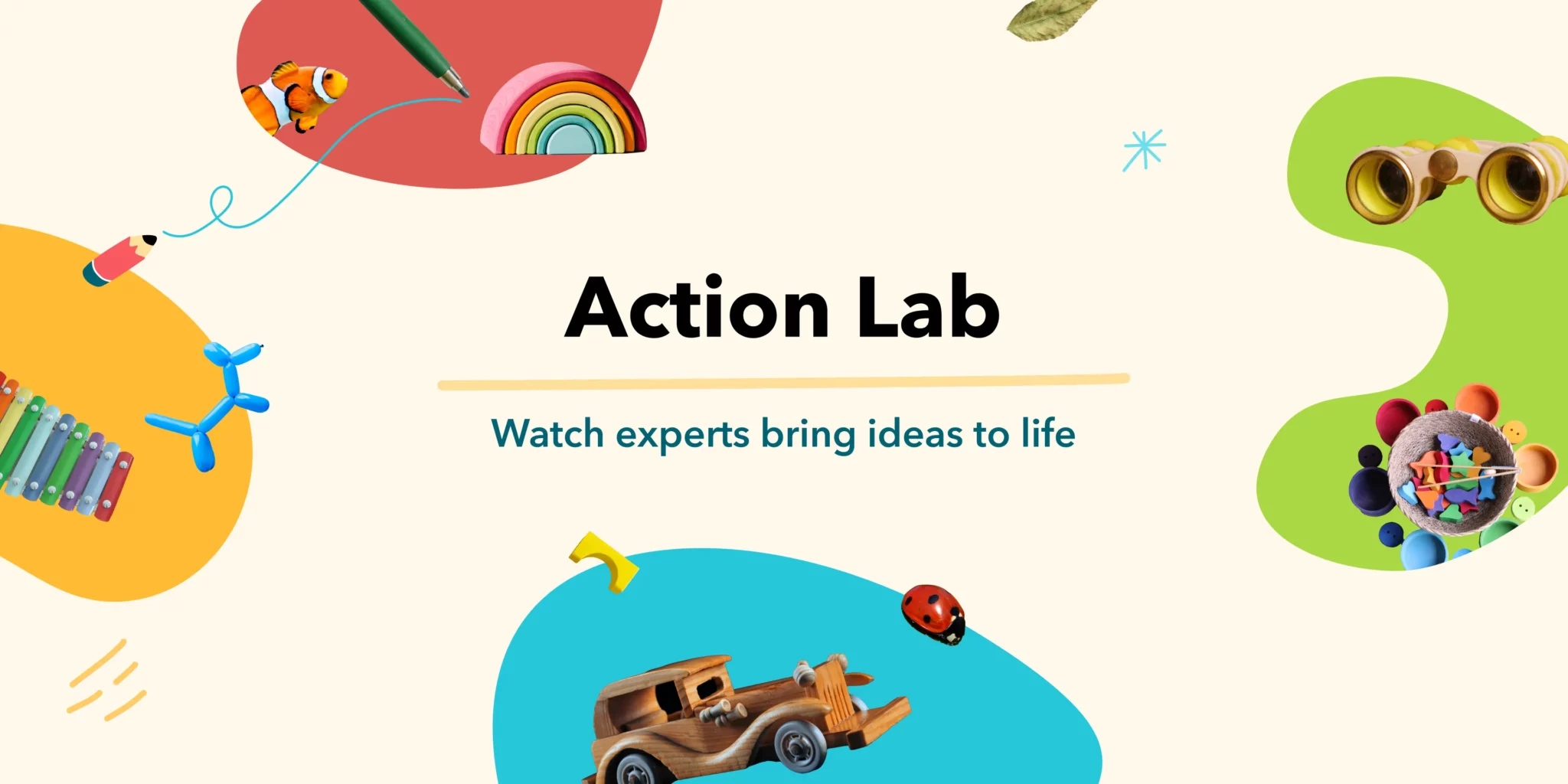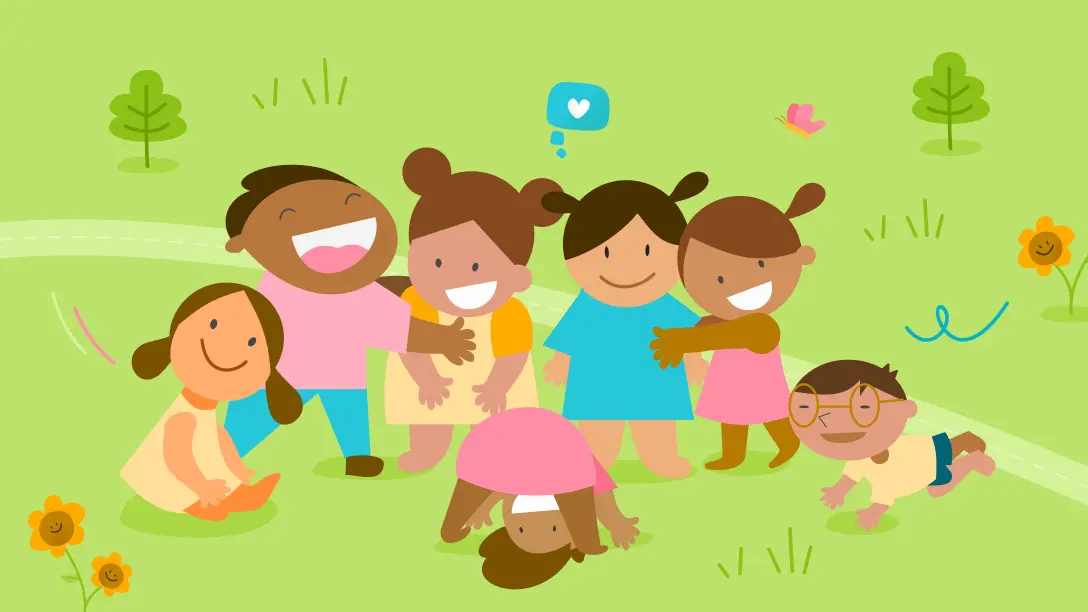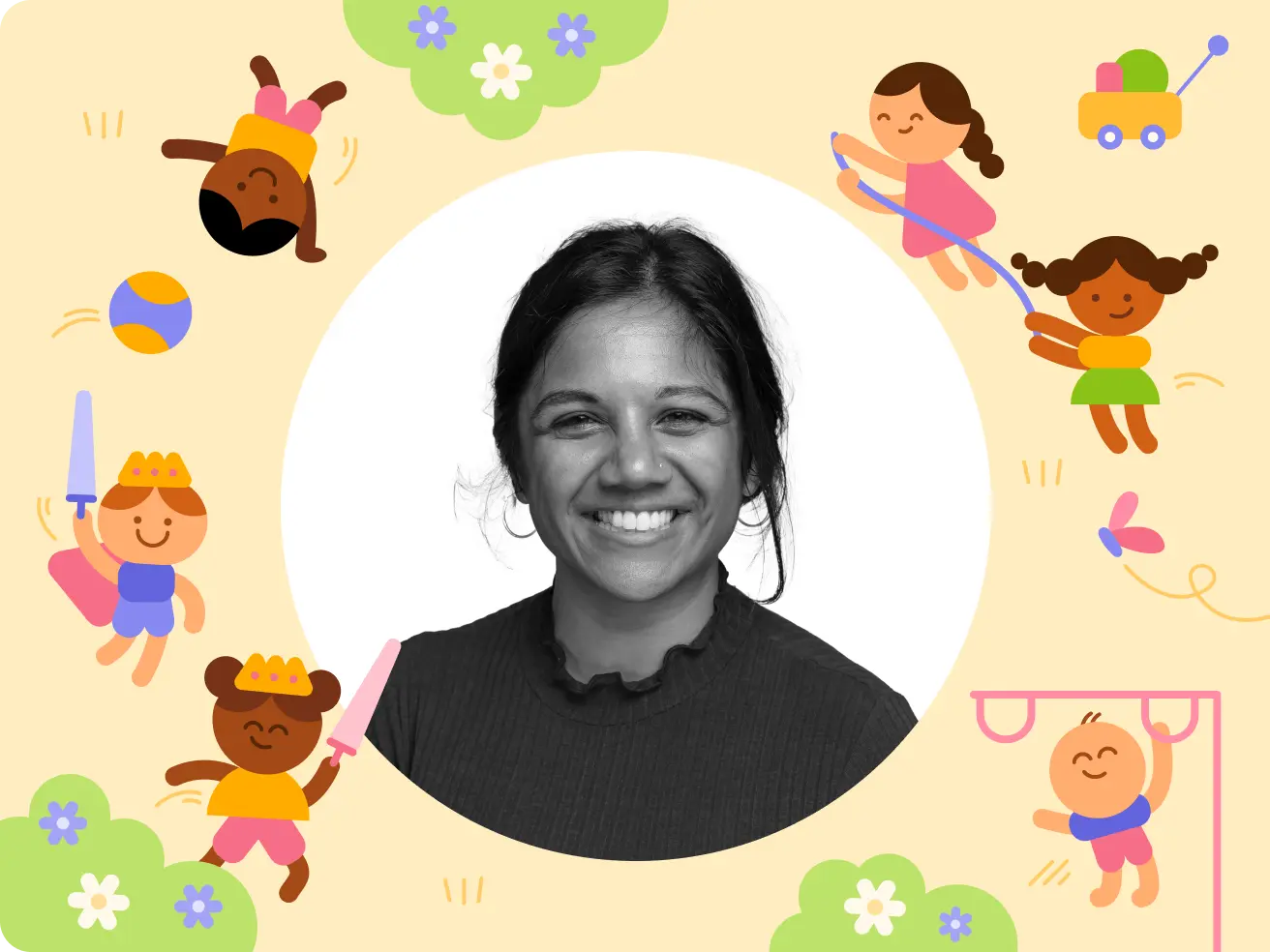Student profiles serve as a comprehensive record of a child’s holistic development, taking into account their experiences across various ecological systems. This ongoing document enables educators to consider the varying factors and changes, such as health or housing, that might affect learning and development over time. Building a student profile document that follows a child through their educational journey can be an effective way to apply Bronfenbrenner’s Ecological Development Model. Ultimately, student profiles can help ensure that support, learning, and development is tailored to each child’s unique needs and circumstances, fostering more meaningful and impactful learning experiences.
What are the benefits of student profiles?
- Celebrating individuality: Honours each child’s unique background and perspectives, nurturing self-confidence and a positive self-image.
- Highlighting strengths: Empowers educators to recognise children’s potential as building blocks for development and learning.
- Collaborative partnerships: Involves families and key people in the development of profiles, creating a powerful support network and valuing diverse perspectives and expertise.
- Culturally responsive narratives: Incorporates cultural diversity, promoting inclusivity, appreciation, and sensitivity among all partners in the learning journey.
- Individualised learning: Enables learning to be adjusted, maximising each child’s potential, encouraging active participation and ownership.
- Reflecting growth and progress: Documents milestones and instils a sense of empowerment and achievement in children.
- Reflection: Creates opportunities for educators, families, and the child to reflect and set goals, fostering self-awareness, evaluation, and lifelong learning.
By incorporating these principles into your pedagogical approach, you can create an environment that supports and nurtures the holistic development and growth of each child. Celebrating and empowering every child’s educational journey creates a positive and inclusive atmosphere where they can thrive and feel valued.
How to use this resource:
- Collaborate with family and other professionals to gain unique insights for the child’s development
- Consider the influence of various factors on the child’s development and use these to build nurturing relationships
- Discover how to apply Bronfenbrenner’s model in creating student profiles











